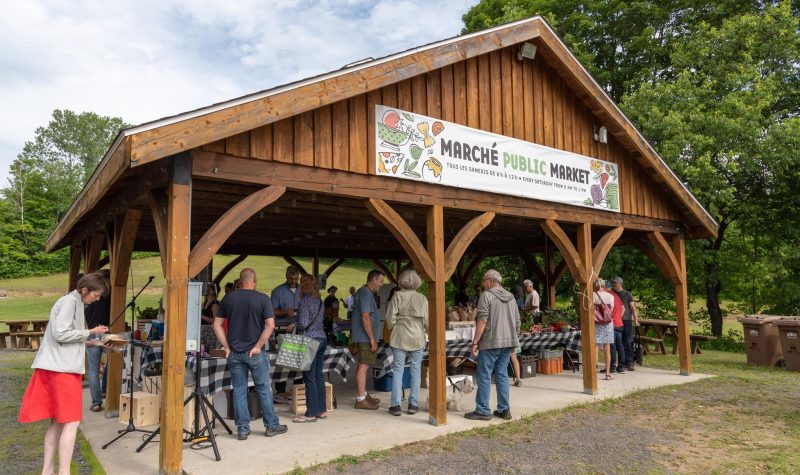The Rucher Boltonnois is a social-economic non-profit organization in Bolton-Est that has been bringing citizens together around different community projects for the past five years.
The Rucher was born out of the “I adopt a bee hive” project started by town councillor and president of the organization Alain Déry, with the financial support of the municipality, in 2017.
The project was a success, but in order to bring a sense off community life to Bolton-Est, and its surrounding villages, through other projects, financial aid was needed; this led to the creation of The Rucher in 2018.
Five years into its mission, The Rucher continues to be “inspired by the collective strength of bees to carry out major projects, one small drop of nectar at a time.”
“The main mission of the organization was, first of all, to take care of the bees and to maintain the community beekeeping project. We wanted, through this, to develop a social network for the members joining the organization, we organized workshop courses, and we also wanted to promote the creation of community cooking groups,” said Déry. “This was the initial mission of the organization and other projects came along.”
After a local farmer approached him to ask questions about how to create a non-organization in order to get a public market up and running, The Rucher took the project into its own hands.
“I said ‘we already exist, so why don’t we make it together?’ That’s how we created the public market in Bolton-Est in 2018. It was an immediate success. (…) Once we had eight merchants, and then the next year it grew to 25 merchants. We like to grow,” mentioned Déry.
In 2019, the group set up a bistro in Terrio park where the public market is located and coordinated different activities for children to give “added value” to the experience.
“Then, in 2020, we all know the pandemic came around. So, we started to do live shows online every Thursday to keep people together. (…) Sometimes we had 500 people connected, this was a big event every week. This gave an opportunity for the artists to perform. That same year we also started an online public market because of the pandemic again, but it is still alive,” added Déry.
After the municipality decided to sell the building where the organization was hosting some of its shows during the winter, members of the group rallied together to purchase the building. The organization’s projects only continue to grow from there.
“We did buy the building in Oct. 2020 with the money brought about by the members, no bank. This was a big commitment for many people; it took the shape of loans and some gifts also,” explained Déry. “(…) The pandemic was slowing down and in 2022 we started to do live shows. We created what we call Le Bistro du Rucher, which is now a cultural location in Bolton-Est and for the neighbouring towns.”
Last year some members approached the organization to make their own beer.
“So, we started the first community beer brewing station, I think, in the Eastern Townships at least. (…) Also last year, two members came and said there was a little cinema in Potton, it’s labelled as the smallest cinema in Quebec, and they lost their place to host their events,” he highlighted. “(…) I said ‘okay, we will try to find money to buy a screen and a projector’; we did and we have been partners with Cinéma Potton for two years.”
The Rucher’s newest project involves community agriculture and collaborating with local farmers to do food transformation.
“We planted 2,000 pounds of potatoes that we harvested. This year we will double the size of the project. (…) We’re discussing, so that’s the new baby coming up slowly,” noted Déry.
The Rucher depends on the different skills and expertise of volunteers to help carry out its projects and initiatives.
The group has 200 members so far, but it’s hoping to 50 more names this year.
“At The Rucher, we’re lucky we have a good turnover. We have new people coming in and we have some that are still there from the beginning, it’s always open,” mentioned Déry.
Déry told CIDI that The Rucher’s projects have brought French and English speakers together.
“Every crowd was a little bit apart, the English on one side and the French on one side. The market and the bistro are bringing those people together and this is fantastic. (…) This also brings young families because the offer is there. What people say in Bolton-Est is that there is life, there is community life, and this is very attractive,” he said.
For more information about The Rucher and its events visit its website.
Listen to the full interview below:


